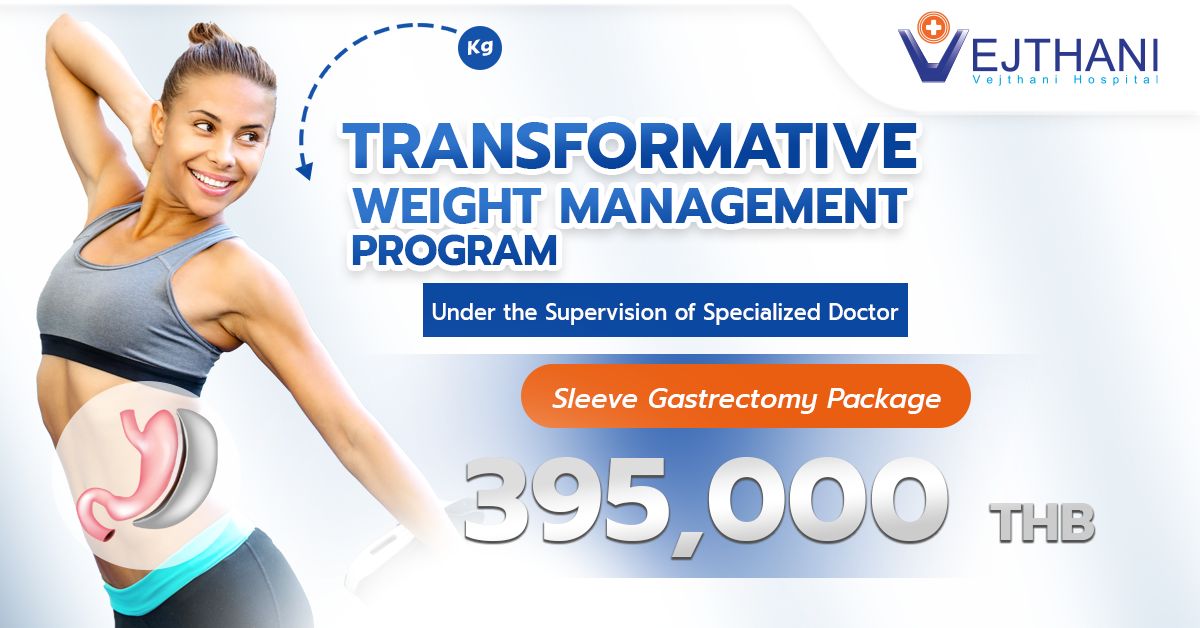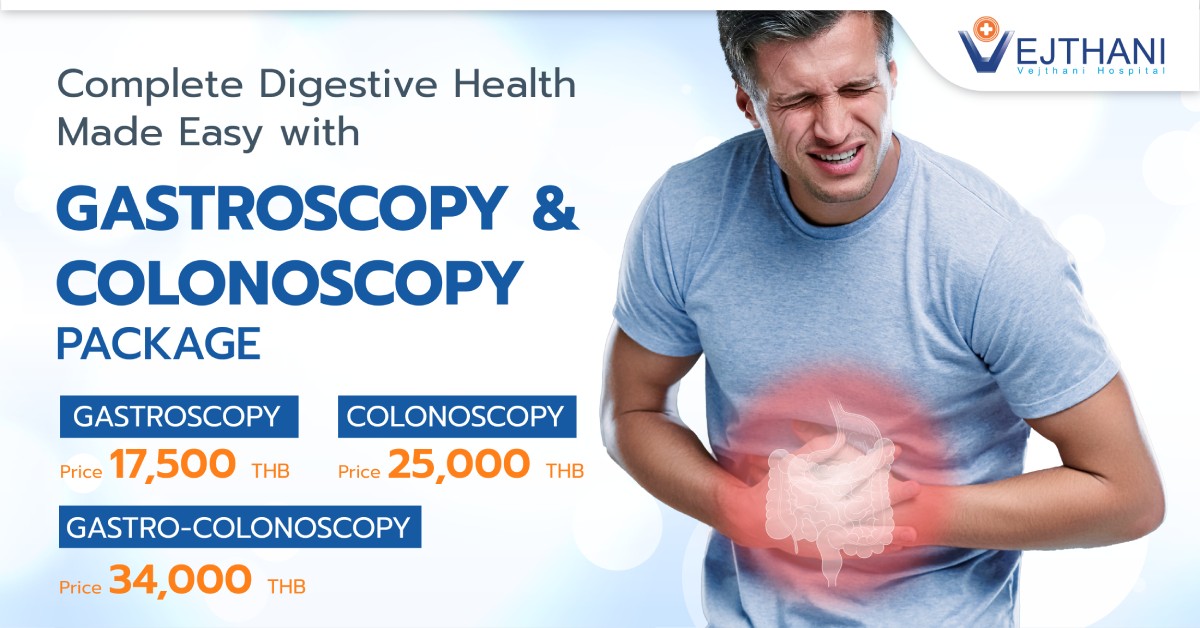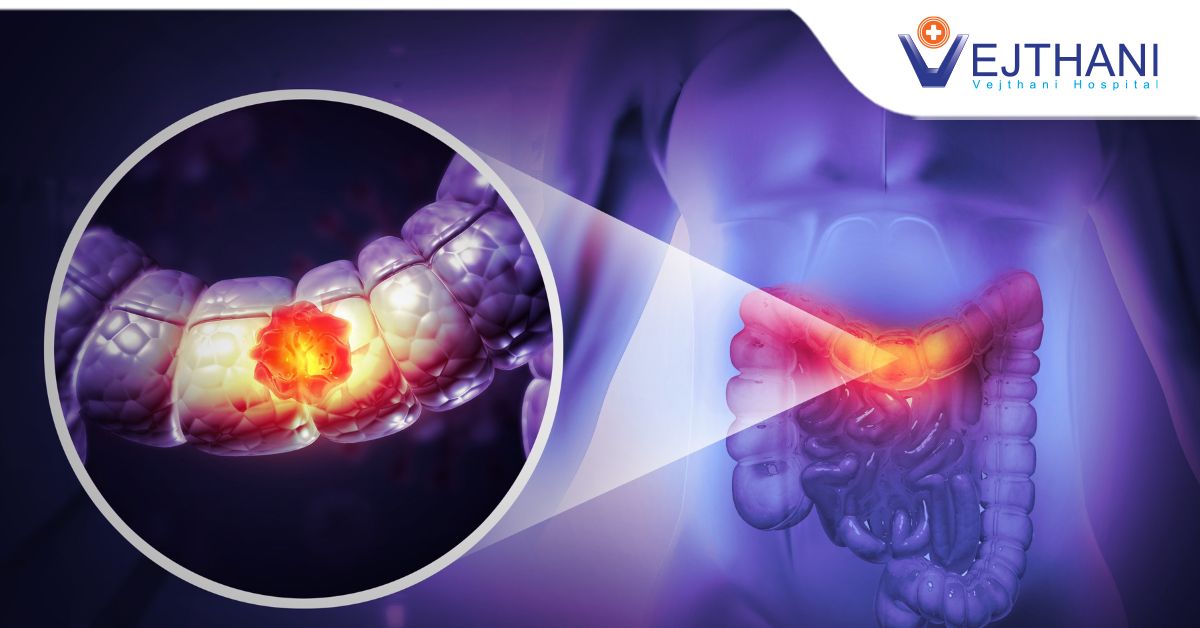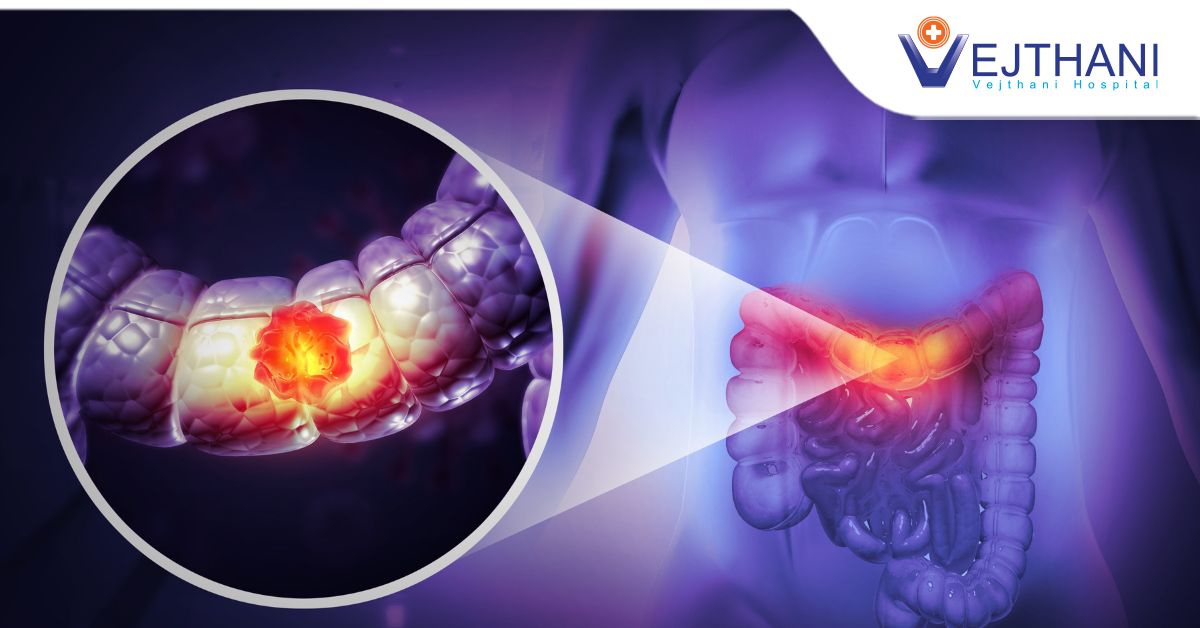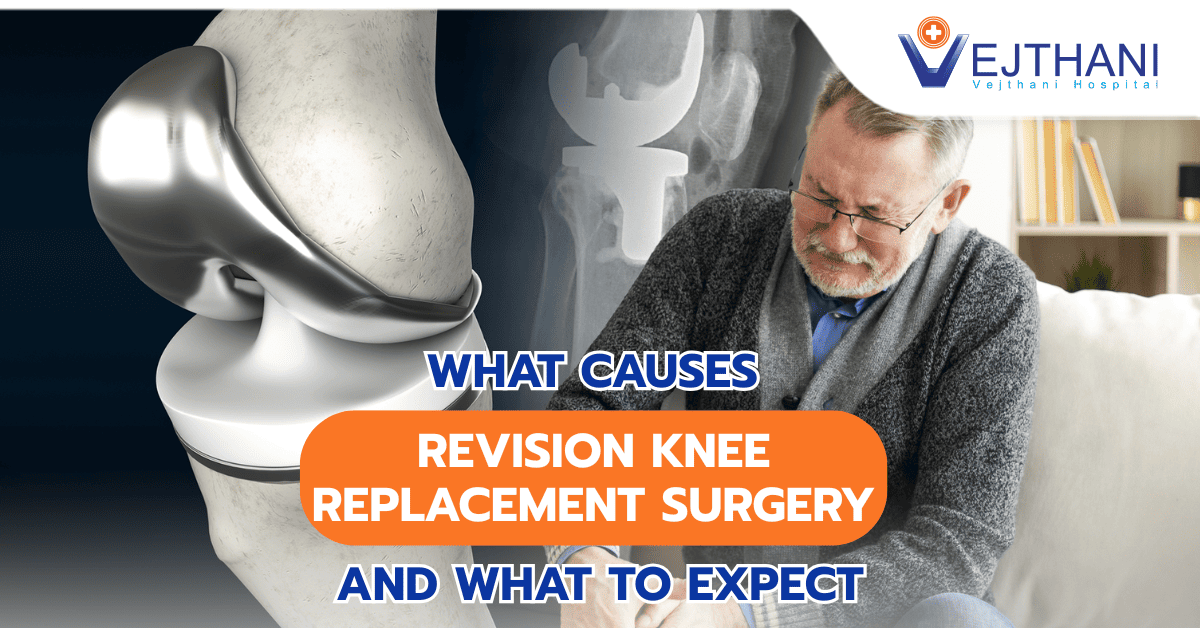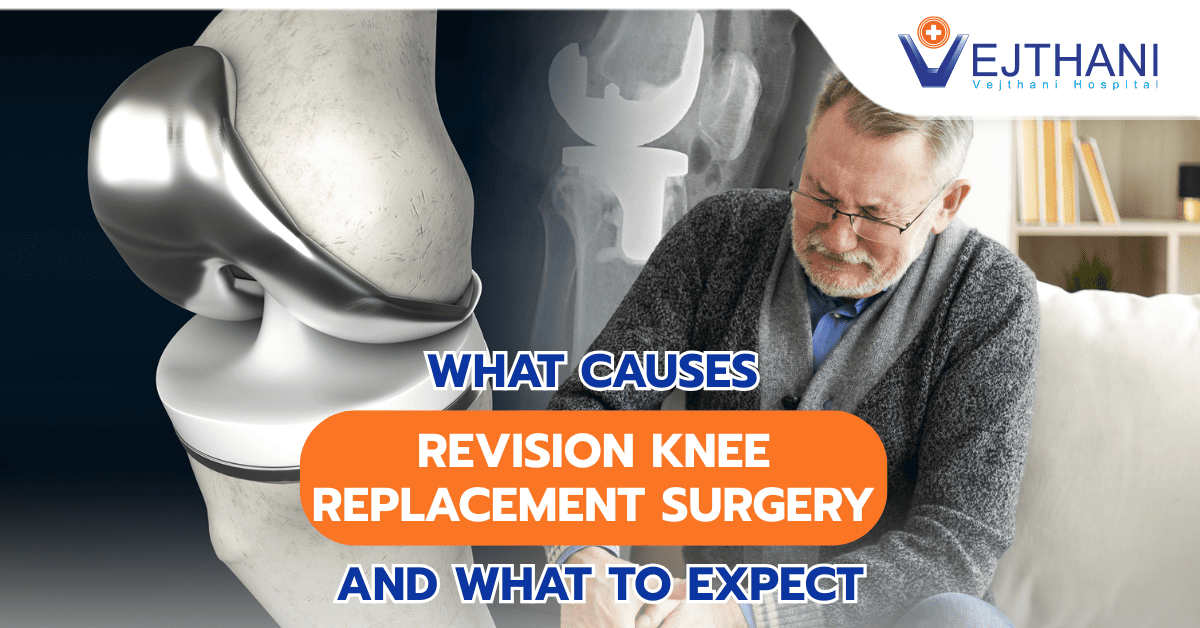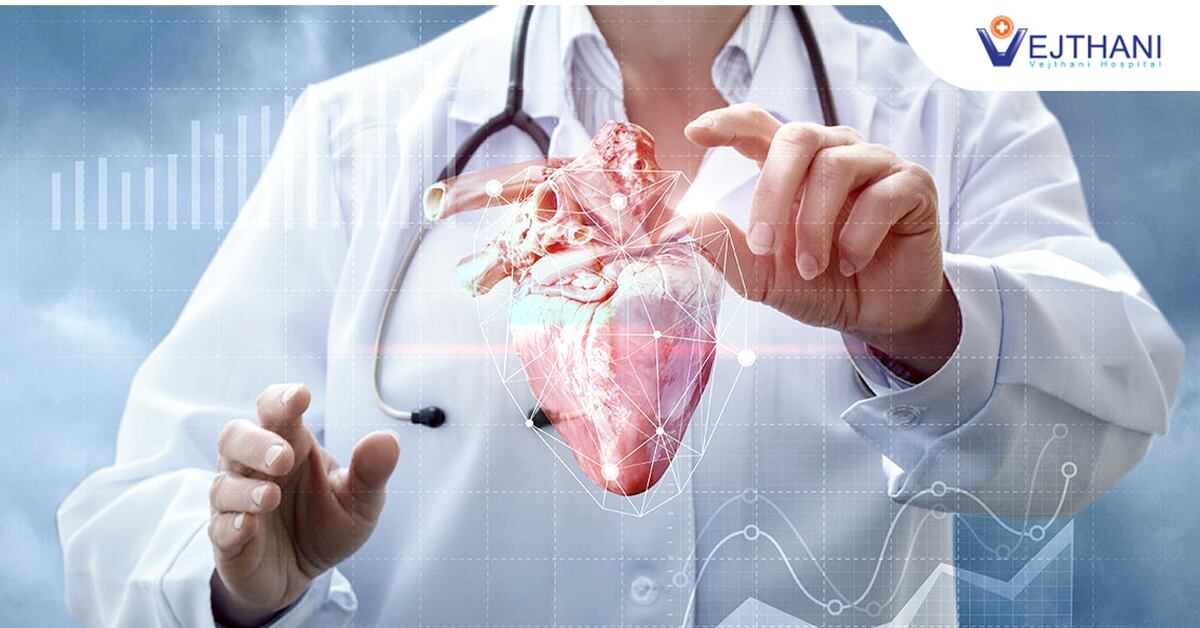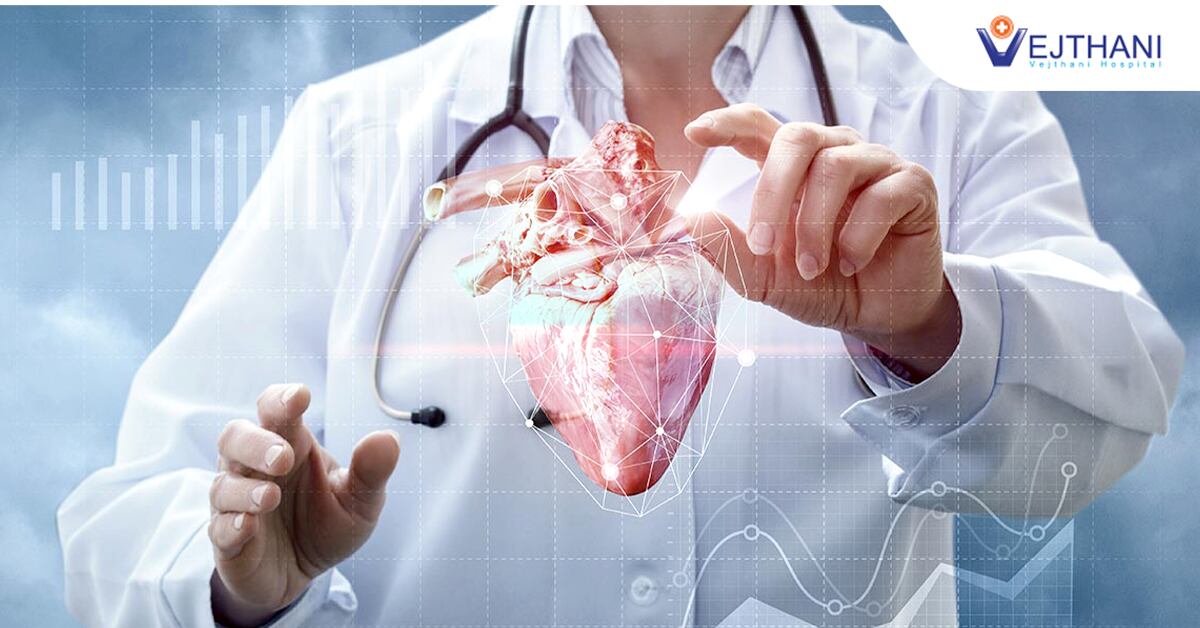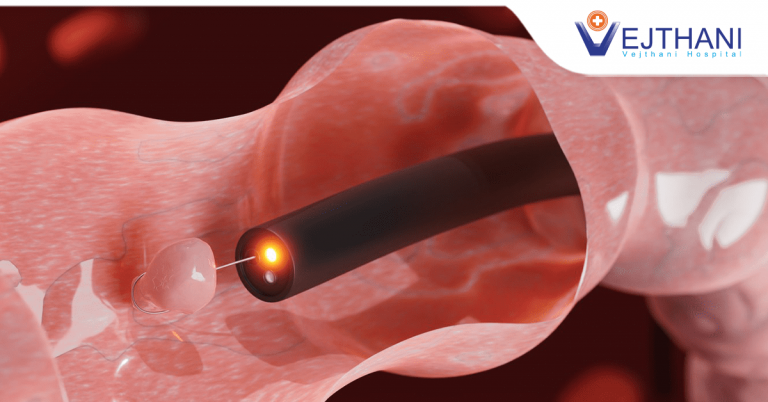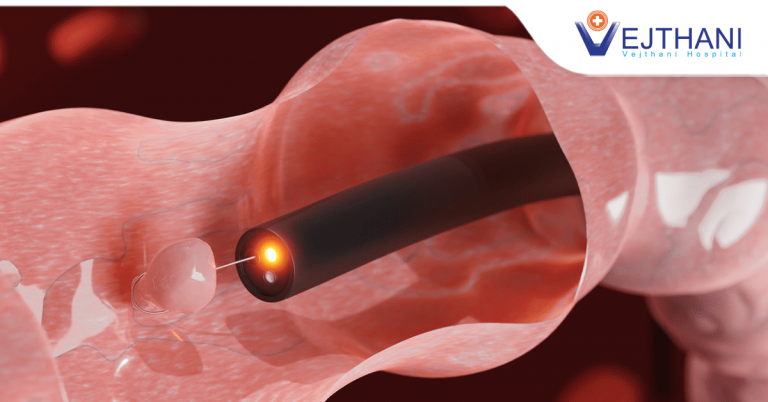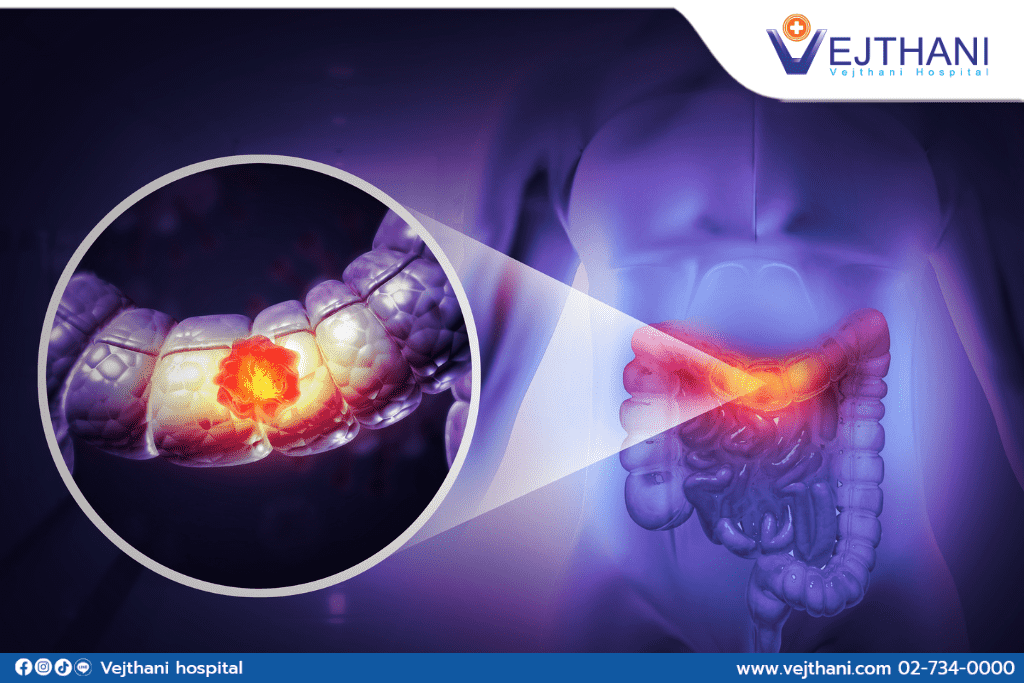
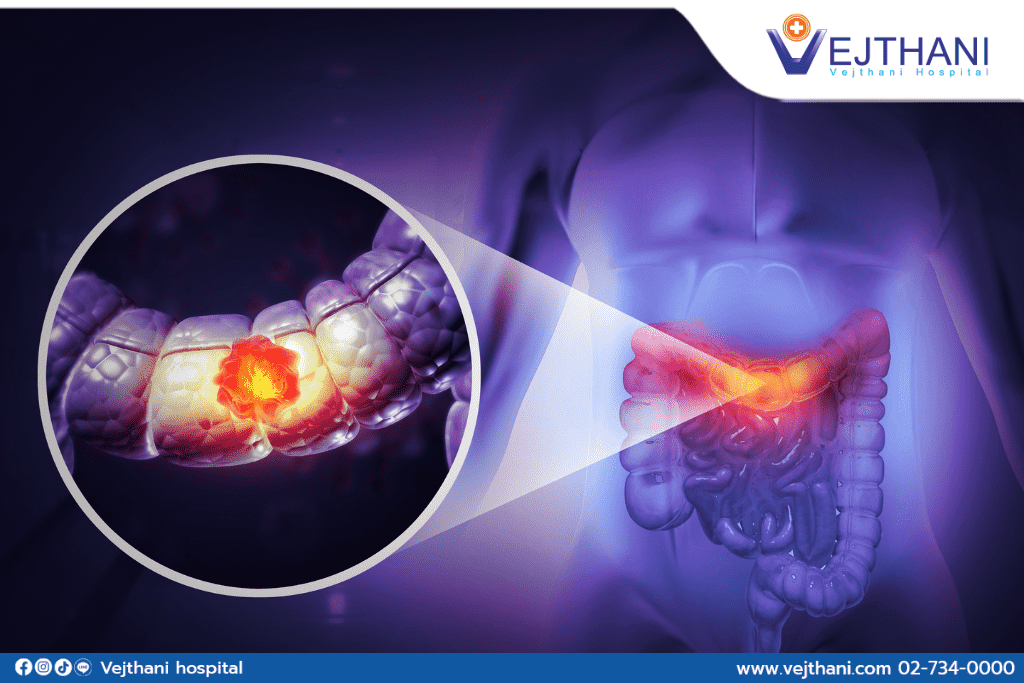
The lifetime risk of developing colorectal cancer is approximately 1 in 25 for both men and women. However, an individual’s risk may vary based on specific factors. Fortunately, modern screening methods—such as colonoscopy—can detect early abnormalities, significantly improving the chances of effective prevention and treatment.
Lt. Col. Dr. Chanyawat Sangsomwong, a specialized surgeon in colorectal surgery at Vejthani Hospital, explained that colon cancer occurs from polyps in the walls of the colon. In the early stages, these polyps typically do not cause any noticeable symptoms. However, if the polyps grow larger or change abnormally, they can lead to symptoms like blood or mucus in the stool, smaller stools, alternating constipation and diarrhea, bloating, abdominal distension, or a palpable mass in the abdomen.
The exact cause of colon polyps is still unknown at present, but the risk factors can be divided into two types:
Individual Risk Factors:
- Age: In the past, over 90% of colon cancer patients were found to be over 50 years old, with the average age ranging between 60 and 65 years. However, in the last 10 years, the incidence of colon cancer in patients under 50 has been steadily increasing. The youngest patient reported is 18 years old.
- Family history and genetics: Approximately 20% of colon cancer patients have a family history of the disease.
- History of intestinal polyps: Studies have shown that certain types of polyps can develop into colon cancer. However, early detection and treatment—while the polyps are still benign—can significantly reduce the risk of progression to cancer.
Environmental Risk Factors:
- Overweight and lack of exercise: Studies have shown that body weight is closely linked to the risk of developing colon cancer, while regular exercise boosts metabolism and supports healthy bowel function. Over time, these benefits can contribute to a reduced risk of colon cancer.
- Food: Some types of food contain hidden carcinogens, especially processed foods such as sausage, bacon, fermented pork, meatballs, Chinese sausage, and red meat that has been cooked at high temperatures until charred, like grilling or barbecuing.
- Smoking: Studies have found that 12% of individuals who died from colon cancer had a history of smoking.
- Alcohol: Drinking alcohol combined with smoking increases the risk of developing cancer.
Currently, doctors can detect polyps in the colon using advanced technology like colonoscopy. This allows for early detection, even if the polyps are as small as 2 millimeters—about the size of a mung bean. Additionally, a specialized technique called Magnified Digital Chromoendoscopy is used to assess the surface color and blood vessels of the polyps. This helps determine the type of polyp, whether it has progressed into malignant, and whether it has spread into deeper tissue layers, ensuring the most appropriate treatment. Moreover, if a polyp is detected during a colonoscopy, doctors can remove it immediately, reducing the risk of it developing into colon cancer in the future.
Moreover, with the endoscopic surgical technique known as Endoscopic Submucosal Dissection (ESD), it is possible to remove large polyps—even those with early cancerous changes— as long as the cancer has not spread to deeper tissue layers or lymph nodes.
This procedure is performed using a colonoscope, eliminating the need for abdominal incisions. In some cases, it also helps patients avoid unnecessary colostomy (opening of the colon through the abdomen). However, after undergoing this procedure, patients should have regular follow-up endoscopies as advised by their doctor.
However, colonoscopy to detect polyps is like a health check-up that should be done before any abnormalities occur. This is especially important for individuals over 50 or those with a family history of colon cancer, as they should have regular gastrointestinal screenings. It is advisable to undergo these screenings with experienced doctors who specialize in endoscopic technology to ensure accurate diagnosis. At the same time, it is essential to reduce risk factors that may contribute to abnormalities in the colon, such as consuming charred grilled foods, frozen meals, and processed foods such as red meat and sausages.
For more information, please contact
Colorectal Center, Vejthani Hospital
Call: (+66)2-734-0000 Ext. 4500, 4501
English Hotline: (+66)85-223-8888
- Readers Rating
- Rated 5 stars
5 / 5 ( Reviewers) - Spectacular
- Your Rating























